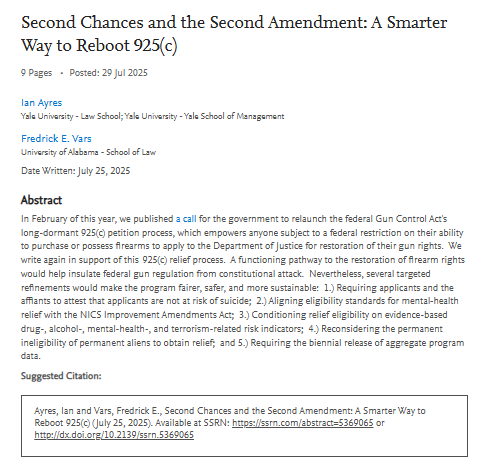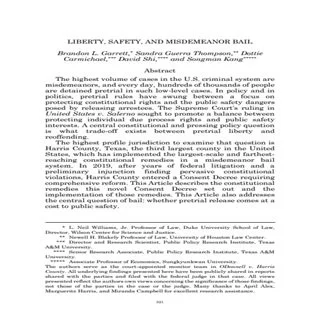By Ian Ayres and Fredrick E. Vars
In February of this year, we published a call for the government to relaunch the federal Gun Control Act's long-dormant 925(c) petition process, which empowers anyone subject to a federal restriction on their ability to purchase or possess firearms to apply to the Department of Justice for restoration of their gun rights. We write again in support of this 925(c) relief process. A functioning pathway to the restoration of firearm rights would help insulate federal gun regulation from constitutional attack. Nevertheless, several targeted refinements would make the program fairer, safer, and more sustainable: 1.) Requiring applicants and the affiants to attest that applicants are not at risk of suicide; 2.) Aligning eligibility standards for mental‑health relief with the NICS Improvement Amendments Act; 3.) Conditioning relief eligibility on evidence-based drug-, alcohol-, mental-health-, and terrorism-related risk indicators; 4.) Reconsidering the permanent ineligibility of permanent aliens to obtain relief; and 5.) Requiring the biennial release of aggregate program data.
U of Alabama Legal Studies Research Paper 2025





